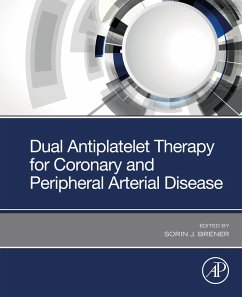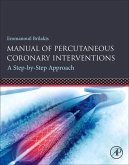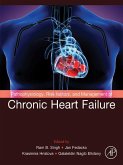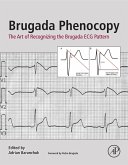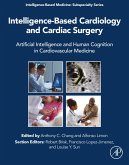A clinically relevant and updated compendium of data pertaining to this field is also presented, as well as the anticipated trends and innovations likely to occur in the next 3-5 years.
- Summarizes a large body of evidence into concrete, relevant recommendations that is readily adapted by practicing clinicians
- Explores the current status of DAPT, controversial topics, and future developments and trends in this field
- Edited and contributed by renowned cardiologists in the field
Dieser Download kann aus rechtlichen Gründen nur mit Rechnungsadresse in A, B, BG, CY, CZ, D, DK, EW, E, FIN, F, GR, HR, H, IRL, I, LT, L, LR, M, NL, PL, P, R, S, SLO, SK ausgeliefert werden.

